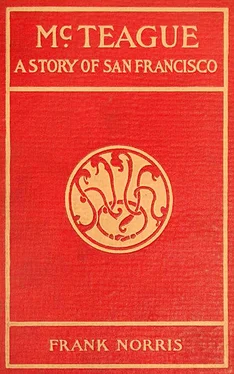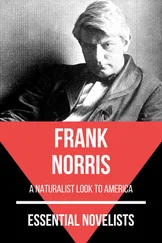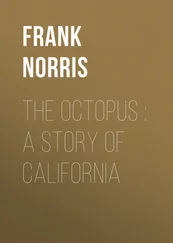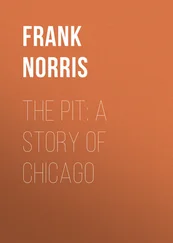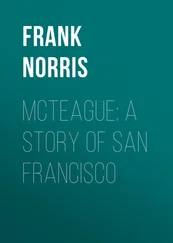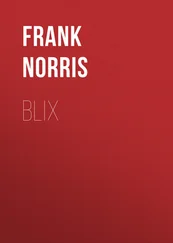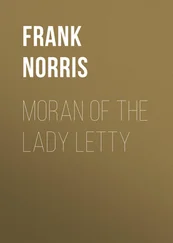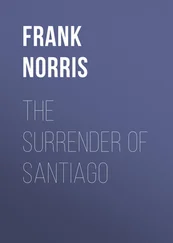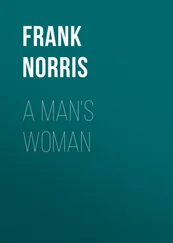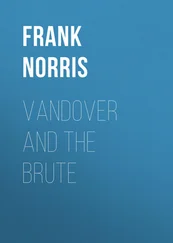Frank Norris - McTEAGUEA Story of San Franciscoby
Здесь есть возможность читать онлайн «Frank Norris - McTEAGUEA Story of San Franciscoby» весь текст электронной книги совершенно бесплатно (целиком полную версию без сокращений). В некоторых случаях можно слушать аудио, скачать через торрент в формате fb2 и присутствует краткое содержание. Год выпуска: 1899, Жанр: Классическая проза, на английском языке. Описание произведения, (предисловие) а так же отзывы посетителей доступны на портале библиотеки ЛибКат.
- Название:McTEAGUEA Story of San Franciscoby
- Автор:
- Жанр:
- Год:1899
- ISBN:нет данных
- Рейтинг книги:5 / 5. Голосов: 1
-
Избранное:Добавить в избранное
- Отзывы:
-
Ваша оценка:
- 100
- 1
- 2
- 3
- 4
- 5
McTEAGUEA Story of San Franciscoby: краткое содержание, описание и аннотация
Предлагаем к чтению аннотацию, описание, краткое содержание или предисловие (зависит от того, что написал сам автор книги «McTEAGUEA Story of San Franciscoby»). Если вы не нашли необходимую информацию о книге — напишите в комментариях, мы постараемся отыскать её.
McTEAGUEA Story of San Franciscoby — читать онлайн бесплатно полную книгу (весь текст) целиком
Ниже представлен текст книги, разбитый по страницам. Система сохранения места последней прочитанной страницы, позволяет с удобством читать онлайн бесплатно книгу «McTEAGUEA Story of San Franciscoby», без необходимости каждый раз заново искать на чём Вы остановились. Поставьте закладку, и сможете в любой момент перейти на страницу, на которой закончили чтение.
Интервал:
Закладка:
"There was SOMETHING," he muttered, looking in a puzzled way at his canary in the cage that hung from the wall at his bedside; "something. What was it? There is something NOW. There it is again — the same thing." He sat up in bed with eyes and ears strained. "What is it? I don' know what it is. I don' hear anything, an' I don' see anything. I feel something — right now; feel it now. I wonder — I don' know — I don' know."
Once more he got up, and this time dressed himself. He made a complete tour of the camp, looking and listening, for what he did not know. He even went to the outskirts of the camp and for nearly half an hour watched the road that led into the camp from the direction of Iowa Hill. He saw nothing; not even a rabbit stirred. He went to bed.
But from this time on there was a change. The dentist grew restless, uneasy. Suspicion of something, he could not say what, annoyed him incessantly. He went wide around sharp corners. At every moment he looked sharply over his shoulder. He even went to bed with his clothes and cap on, and at every hour during the night would get up and prowl about the bunk house, one ear turned down the wind, his eyes gimleting the darkness. From time to time he would murmur:
"There's something. What is it? I wonder what it is."
What strange sixth sense stirred in McTeague at this time? What animal cunning, what brute instinct clamored for recognition and obedience? What lower faculty was it that roused his suspicion, that drove him out into the night a score of times between dark and dawn, his head in the air, his eyes and ears keenly alert?
One night as he stood on the steps of the bunk house, peering into the shadows of the camp, he uttered an exclamation as of a man suddenly enlightened. He turned back into the house, drew from under his bed the blanket roll in which he kept his money hid, and took the canary down from the wall. He strode to the door and disappeared into the night. When the sheriff of Placer County and the two deputies from San Francisco reached the Big Dipper mine, McTeague had been gone two days.
CHAPTER 21
"Well," said one of the deputies, as he backed the horse into the shafts of the buggy in which the pursuers had driven over from the Hill, "we've about as good as got him. It isn't hard to follow a man who carries a bird cage with him wherever he goes."
McTeague crossed the mountains on foot the Friday and Saturday of that week, going over through Emigrant Gap, following the line of the Overland railroad. He reached Reno Monday night. By degrees a vague plan of action outlined itself in the dentist's mind.
"Mexico," he muttered to himself. "Mexico, that's the place. They'll watch the coast and they'll watch the Eastern trains, but they won't think of Mexico."
The sense of pursuit which had harassed him during the last week of his stay at the Big Dipper mine had worn off, and he believed himself to be very cunning.
"I'm pretty far ahead now, I guess," he said. At Reno he boarded a south-bound freight on the line of the Carson and Colorado railroad, paying for a passage in the caboose. "Freights don' run on schedule time," he muttered, "and a conductor on a passenger train makes it his business to study faces. I'll stay with this train as far as it goes."
The freight worked slowly southward, through western Nevada, the country becoming hourly more and more desolate and abandoned. After leaving Walker Lake the sage-brush country began, and the freight rolled heavily over tracks that threw off visible layers of heat. At times it stopped whole half days on sidings or by water tanks, and the engineer and fireman came back to the caboose and played poker with the conductor and train crew. The dentist sat apart, behind the stove, smoking pipe after pipe of cheap tobacco. Sometimes he joined in the poker games. He had learned poker when a boy at the mine, and after a few deals his knowledge returned to him; but for the most part he was taciturn and unsociable, and rarely spoke to the others unless spoken to first. The crew recognized the type, and the impression gained ground among them that he had "done for" a livery-stable keeper at Truckee and was trying to get down into Arizona.
McTeague heard two brakemen discussing him one night as they stood outside by the halted train. "The livery-stable keeper called him a bastard; that's what Picachos told me," one of them remarked, "and started to draw his gun; an' this fellar did for him with a hayfork. He's a horse doctor, this chap is, and the livery-stable keeper had got the law on him so's he couldn't practise any more, an' he was sore about it."
Near a place called Queen's the train reentered California, and McTeague observed with relief that the line of track which had hitherto held westward curved sharply to the south again. The train was unmolested; occasionally the crew fought with a gang of tramps who attempted to ride the brake beams, and once in the northern part of Inyo County, while they were halted at a water tank, an immense Indian buck, blanketed to the ground, approached McTeague as he stood on the roadbed stretching his legs, and without a word presented to him a filthy, crumpled letter. The letter was to the effect that the buck Big Jim was a good Indian and deserving of charity; the signature was illegible. The dentist stared at the letter, returned it to the buck, and regained the train just as it started. Neither had spoken; the buck did not move from his position, and fully five minutes afterward, when the slow-moving freight was miles away, the dentist looked back and saw him still standing motionless between the rails, a forlorn and solitary point of red, lost in the immensity of the surrounding white blur of the desert.
At length the mountains began again, rising up on either side of the track; vast, naked hills of white sand and red rock, spotted with blue shadows. Here and there a patch of green was spread like a gay table-cloth over the sand. All at once Mount Whitney leaped over the horizon. Independence was reached and passed; the freight, nearly emptied by now, and much shortened, rolled along the shores of Owen Lake. At a place called Keeler it stopped definitely. It was the terminus of the road.
The town of Keeler was a one-street town, not unlike Iowa Hill — the post-office, the bar and hotel, the Odd Fellows' Hall, and the livery stable being the principal buildings.
"Where to now?" muttered McTeague to himself as he sat on the edge of the bed in his room in the hotel. He hung the canary in the window, filled its little bathtub, and watched it take its bath with enormous satisfaction. "Where to now?" he muttered again. "This is as far as the railroad goes, an' it won' do for me to stay in a town yet a while; no, it won' do. I got to clear out. Where to? That's the word, where to? I'll go down to supper now" — He went on whispering his thoughts aloud, so that they would take more concrete shape in his mind—"I'll go down to supper now, an' then I'll hang aroun' the bar this evening till I get the lay of this land. Maybe this is fruit country, though it looks more like a cattle country. Maybe it's a mining country. If it's a mining country," he continued, puckering his heavy eyebrows, "if it's a mining country, an' the mines are far enough off the roads, maybe I'd better get to the mines an' lay quiet for a month before I try to get any farther south."
He washed the cinders and dust of a week's railroading from his face and hair, put on a fresh pair of boots, and went down to supper. The dining-room was of the invariable type of the smaller interior towns of California. There was but one table, covered with oilcloth; rows of benches answered for chairs; a railroad map, a chromo with a gilt frame protected by mosquito netting, hung on the walls, together with a yellowed photograph of the proprietor in Masonic regalia. Two waitresses whom the guests — all men — called by their first names, came and went with large trays.
Читать дальшеИнтервал:
Закладка:
Похожие книги на «McTEAGUEA Story of San Franciscoby»
Представляем Вашему вниманию похожие книги на «McTEAGUEA Story of San Franciscoby» списком для выбора. Мы отобрали схожую по названию и смыслу литературу в надежде предоставить читателям больше вариантов отыскать новые, интересные, ещё непрочитанные произведения.
Обсуждение, отзывы о книге «McTEAGUEA Story of San Franciscoby» и просто собственные мнения читателей. Оставьте ваши комментарии, напишите, что Вы думаете о произведении, его смысле или главных героях. Укажите что конкретно понравилось, а что нет, и почему Вы так считаете.
